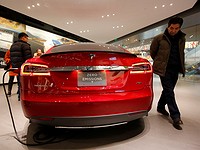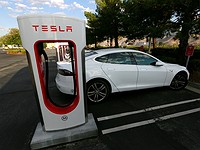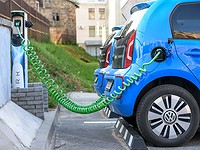In just over ten years electric vehicles could account for 30 percent of the global auto market, according to Total.
Joel Couse, who is the French oil major's chief economist, told the Bloomberg New Energy Finance conference in New York on Tuesday that if the prediction is proven true demand for petroleum-based fuel “will flatten out, maybe even decline.”
Mr Couse's forecast is the highest yet made by a major oil company and even exceeds Bloomberg New Energy Finance's projections (BNEF), Colin McKerracher, head of advanced transport analysis at BNEF said.
"That's by far the most aggressive we've seen by any of the majors," Mr McKerracher said.
Last month Royal Dutch Shell's CEO Ben van Beurden said that oil demand could peak in the late 2020s.
It set up a business unit to identify the clean technologies where it could be most profitable.
After a slow start electric vehicles are finally becoming competitive against their oil-powered peers, both in terms of cost and performance.
Elon Musk's Tesla (NASDAQ: Tesla [TSLA]) is the flag bearer for electric cars with his firm's Model S, now the best-selling large luxury car in the US.
The most expensive part of an electric car remains its battery but battery prices have shrunk dramatically, falling at an annual rate of around 20 percent over recent years.
Electric car sales still only represent about one percent of all auto sales around the world but that could surge with major car makers developing their own hybrid and electric vehicles.
Volkswagen is aiming to have electric vehicles make up 25 percent of its sales by 2025 while Toyota Motor Corp. plans to eliminate fossil fuels vehicles entirely by 2050.
However, a major hurdle for electric cars to overcome is to set up a network of charging stations that perhaps one day can be as ubiquitous as the number of petrol stations.





